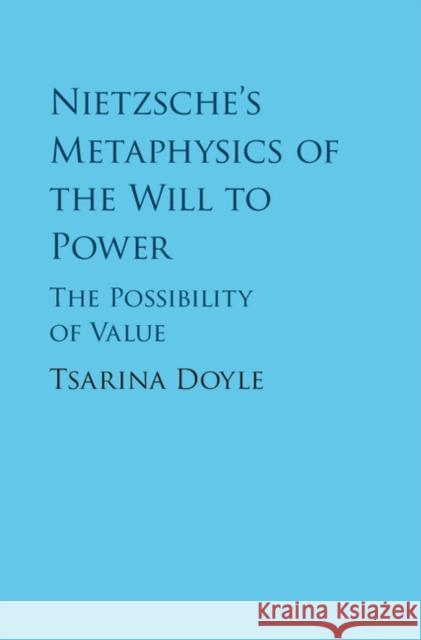Nietzsche's Metaphysics of the Will to Power: The Possibility of Value » książka
topmenu
Nietzsche's Metaphysics of the Will to Power: The Possibility of Value
ISBN-13: 9781108417280 / Angielski / Twarda / 2018 / 248 str.
Nietzsche's Metaphysics of the Will to Power: The Possibility of Value
ISBN-13: 9781108417280 / Angielski / Twarda / 2018 / 248 str.
cena 448,56 zł
(netto: 427,20 VAT: 5%)
Najniższa cena z 30 dni: 306,96 zł
(netto: 427,20 VAT: 5%)
Najniższa cena z 30 dni: 306,96 zł
Termin realizacji zamówienia:
ok. 16-18 dni roboczych.
ok. 16-18 dni roboczych.
Darmowa dostawa!
Presents a fresh interpretation of Nietzsche's controversial account of nature and value in relation to Kant and Hume.











